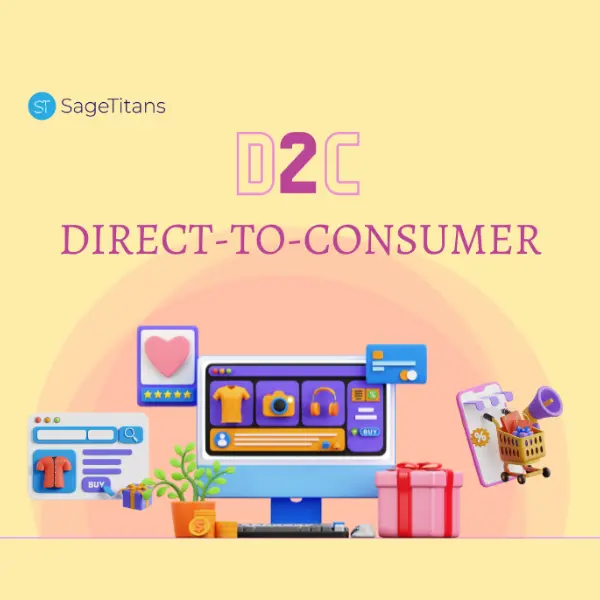
7 Best Marketing Strategies for Direct-to-Consumer (D2C) Brands
We have witnessed the remarkable emergence and rapid growth of Direct-to-Consumer (D2C) brands. These brands have revolutionized the way products and services are brought to market, bypassing traditional retail models and connecting directly with consumers. The rise of D2C brands has been fueled by the power of digital technology and shifting consumer preferences.
D2C brands can leverage digital platforms and online marketplaces to reach a global audience. The internet has provided unprecedented access to consumers, allowing D2C brands to expand their reach beyond geographical boundaries. By utilizing digital marketing strategies, social media platforms, and e-commerce websites, D2C brands can engage with customers across multiple channels and create a seamless omnichannel experience.
In this article, we will delve deeper into the unique advantages and opportunities that D2C brands have over traditional retail models. We will explore the strategies and tactics that have propelled the success of D2C brands, enabling them to disrupt industries and capture the attention of consumers in the digital era.
Characteristics of D2C brands:
Vertical Integration:
D2C brands control every aspect of the value chain, from production and marketing to distribution and customer service. This vertical integration allows them to have greater control over the entire customer experience.
Strong Brand Identity:
D2C brands invest in building a distinct brand identity that resonates with their target audience. They often prioritize storytelling, authenticity, and transparency to connect with consumers on a deeper level.
Data-Driven Approach:
D2C brands leverage customer data to gain insights into consumer behavior, preferences, and purchasing patterns. This data-driven approach helps them personalize marketing campaigns and improve product development.
Key Reasons Why D2C Brands Are Gaining Popularity:
D2C brands have experienced significant growth and popularity in recent years due to several key factors:
Direct Customer Engagement:
D2C brands provide customers with a personalized and interactive experience. By eliminating intermediaries, they have direct access to customer feedback, allowing them to tailor their products and services to meet specific needs. This direct engagement builds trust and enhances customer loyalty.
Cost Efficiency:
By cutting out intermediaries and traditional retail overhead costs, D2C brands can offer products at competitive prices while maintaining healthy profit margins. This cost efficiency is attractive to both consumers and investors.
Enhanced Control and Branding:
D2C brands have complete control over their brand image, messaging, and customer experience. They can craft a unique brand identity and tell their story effectively, resonating with their target audience. This control fosters brand loyalty and differentiation in the market.
Data and Analytics:
D2C brands have access to rich customer data, enabling them to make data-driven decisions. By leveraging analytics and insights, they can personalize marketing campaigns, optimize product offerings, and improve customer experiences. This data-centric approach allows D2C brands to stay ahead of market trends and consumer preferences.
Technological Advancements:
The proliferation of e-commerce platforms, social media, and digital marketing tools has made it easier for D2C brands to reach their target audience. They can leverage these technologies to create engaging online experiences, target specific customer segments, and scale their businesses rapidly.
Leverage Digital Channels for Customer Acquisition:
Create an Effective E-commerce Website:
An e-commerce website is a crucial component of a successful direct-to-consumer (D2C) brand strategy. It serves as a virtual storefront where customers can explore and purchase products. To maximize customer acquisition through your e-commerce website, it’s important to focus on the following aspects:
User-Friendly Design and Intuitive Navigation:
A user-friendly design is essential for providing a positive browsing experience to your website visitors. Ensure that your website has a clean and intuitive layout, with easy-to-understand navigation menus and clear categorization of products. Use a responsive design that adapts to different screen sizes and devices, providing a seamless experience across desktops, smartphones, and tablets.
Optimize Product Listings and Descriptions:
Your product listings should be optimized to attract and engage potential customers. Use high-quality product images that showcase your products from multiple angles and provide zoom functionality for closer inspection.
Craft compelling and accurate product descriptions that highlight the unique features, benefits, and value propositions of your offerings. Incorporate relevant keywords to improve search engine visibility and enhance the chances of your products being found by interested buyers.
Incorporate Seamless Checkout Processes:
The checkout process is a critical stage in converting website visitors into customers. Streamline the checkout process to minimize friction and increase conversions. Implement a guest checkout option for users who don’t want to create an account. Simplify the form-filling process by using autofill features and only requesting essential information.
Clearly display shipping options and costs upfront to avoid surprises at the last moment. Offer multiple secure payment options to accommodate different customer preferences. Lastly, include a progress indicator to guide customers through the checkout steps and assure them of a hassle-free experience.
By focusing on creating an effective e-commerce website, you can enhance the customer acquisition the potential of your D2C brand. A user-friendly design, intuitive navigation, optimized product listings, and seamless checkout processes contribute to a positive customer experience, boost conversions, and foster brand loyalty. Regularly monitor and analyze website performance using analytics tools to identify areas for improvement and make data-driven optimizations to drive continuous growth.
Harness the Power of Social Media:
Social media platforms have become powerful tools for D2C brands to connect with their target audience, build brand awareness, and drive customer acquisition. By strategically utilizing social media, D2C brands can leverage the following tactics:
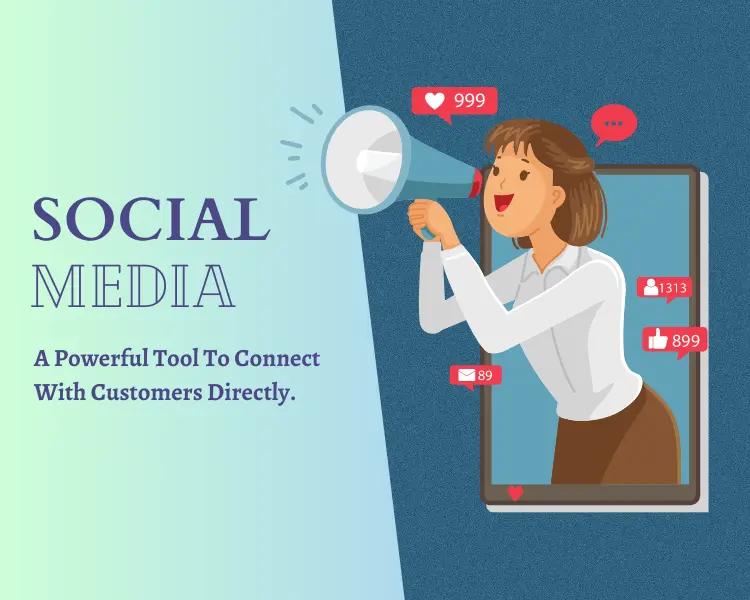
Choose the Right Social Media Platforms for D2C Brands:
Not all social media platforms are created equal, and it’s essential for D2C brands to choose the platforms that align with their target audience and brand objectives. Conduct research to identify the platforms where your target customers are most active.
Consider factors such as demographics, user behavior, and the platform’s suitability for showcasing your products or services. Popular platforms for D2C brands include Instagram, Facebook, Twitter, Pinterest, and TikTok, but it ultimately depends on your specific audience and industry.
Build an Engaged Community and Fostering Brand Advocacy:
Social media provides an opportunity to create an engaged community of loyal customers and brand advocates. Encourage active participation by regularly posting high-quality content that aligns with your brand’s values and resonates with your audience. Engage with your followers by responding to comments, direct messages, and user-generated content.
Foster a sense of community by initiating conversations, hosting contests or giveaways, and featuring customer stories or testimonials. Building a strong community helps generate positive word-of-mouth and organic brand advocacy, expanding your brand’s reach and credibility.
Use Social Media Advertising and Influencer Partnerships:
Social media platforms that offer powerful advertising capabilities to reach a wider audience and drive traffic to your e-commerce website. Utilize the advertising features provided by each platform to create compelling ad campaigns that effectively communicate your brand’s unique selling propositions.
.
Leverage advanced targeting options to reach specific customer segments based on demographics, interests, or behaviors. Additionally, influencer partnerships can be an effective way to tap into the influencer’s existing audience and leverage their credibility and reach. Collaborate with influencers who align with your brand values and have an engaged following to promote your products or services.
By harnessing the power of social media, D2C brands can extend their reach, build a loyal community, and drive customer acquisition. It is important to maintain a consistent brand presence across social media platforms, regularly analyze and optimize performance, and adapt strategies based on the evolving social media landscape.
Social media provides an avenue for D2C brands to showcase their products, engage with their target audience, and amplify their brand message, ultimately driving business growth and success.
Explore Search Engine Marketing (SEM) and Search Engine Optimization (SEO):
Search Engine Marketing (SEM) and Search Engine Optimization (SEO) are powerful strategies for D2C brands to enhance their online visibility, attract targeted traffic, and drive customer acquisition. By implementing SEM and SEO tactics, D2C brands can effectively leverage search engines like Google to their advantage.Let’s explore these strategies in detail:
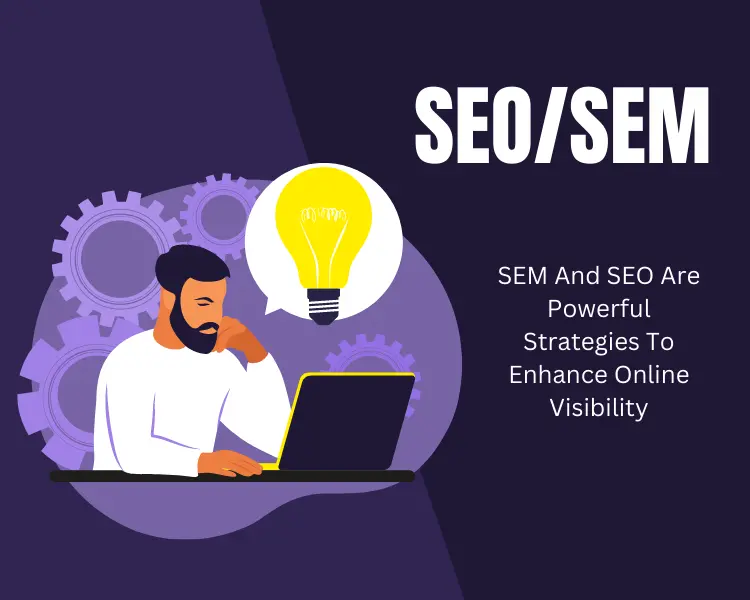
Implement Paid Search Campaigns to Drive Targeted Traffic:
SEM involves running paid search campaigns, commonly known as pay-per-click (PPC) advertising, to display ads on search engine results pages (SERPs). D2C brands can bid on relevant keywords that their target audience is likely to search for and create compelling ad copies. When users search for those keywords, the ads appear at the top or bottom of the SERPs, increasing visibility and driving targeted traffic to the brand’s website.
By carefully managing ad budgets, targeting specific locations or demographics, and tracking performance, D2C brands can optimize their paid search campaigns for maximum ROI.
Optimize Website Content and Meta Tags for Organic Search Visibility:
SEO focuses on improving the organic search visibility of a website by optimizing various elements. D2C brands can optimize website content, including product descriptions, blog posts, and landing pages, to incorporate relevant keywords and provide valuable information to users. Additionally, optimizing meta tags, such as meta titles and meta descriptions, helps search engines understand the content and relevance of web pages.
By following SEO best practices, including using unique and descriptive meta tags, creating high-quality and keyword-rich content, and improving website loading speed and mobile-friendliness, D2C brands can improve their organic search rankings and attract organic traffic.
Leverage Keywords and Customer Intent in D2C Brand Marketing:
Keywords play a crucial role in both SEM and SEO strategies. D2C brands should conduct keyword research to identify the keywords and phrases that align with their products or services and match their target audience’s search intent. By incorporating these keywords strategically in ad copies, website content, and meta tags, D2C brands increase the chances of their brand appearing in relevant search results.
It’s important to understand the customer’s intent behind the search queries and tailor marketing messages accordingly. By aligning keywords and customer intent, D2C brands can improve the relevance of their marketing efforts, enhance user experience, and drive higher conversions.
Embrace Data-Driven Decision-Making:
In the era of digital marketing, data has become an invaluable asset for D2C brands. By embracing data-driven decision-making, brands can gain deep insights into customer behavior, preferences, and purchasing patterns. This allows them to make informed strategic decisions and optimize their marketing efforts. Here are the key points to consider:
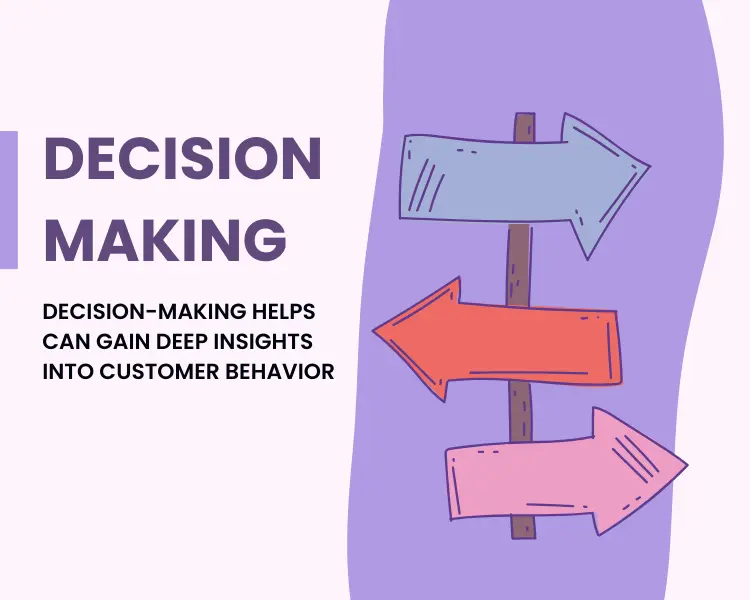
Leverage Customer Data for Personalization and Targeting:
Customer data provides a wealth of information that can be used to personalize marketing campaigns and target specific customer segments. By analyzing demographic data, purchase history, browsing behavior, and other relevant metrics, D2C brands can create personalized experiences, tailored product recommendations, and targeted messaging. This level of personalization enhances customer satisfaction, engagement, and ultimately, conversions.
Implement Analytics Tools to Track and Measure Key Performance Indicators (KPIs):
Analytics tools play a crucial role in understanding the effectiveness of marketing strategies and tracking key performance indicators (KPIs). By integrating tools like Google Analytics or other advanced analytics platforms, D2C brands can measure website traffic, conversion rates, customer acquisition costs, and other essential metrics.
These insights provide a comprehensive view of campaign performance and help identify areas for improvement, allowing brands to make data-driven optimizations.
Use A/B Testing and Conversion Rate Optimization (CRO) Techniques:
A/B testing and conversion rate optimization (CRO) techniques are invaluable for optimizing website performance and marketing campaigns. A/B testing involves comparing two or more versions of a webpage or marketing asset to determine which performs better in terms of user engagement or conversion rates.
By testing different variations of headlines, calls-to-action, layouts, or offers, D2C brands can identify the most effective elements and optimize for better performance. Conversion rate optimization (CRO) focuses on improving the overall conversion rate of a website by making data-driven optimizations. It involves analyzing user behavior, identifying conversion bottlenecks, and implementing changes to streamline the user journey and improve conversion rates.
By embracing data-driven decision-making, D2C brands can gain a competitive edge in the market. Leveraging customer data allows for personalized targeting and marketing campaigns, leading to improved customer satisfaction and higher conversion rates. Implementing analytics tools helps track and measure KPIs, providing insights to optimize marketing strategies.
A/B testing and CRO techniques enable brands to continuously optimize website performance and enhance the user experience. By making data-driven decisions, D2C brands can achieve greater success, increase ROI, and stay ahead in an increasingly competitive landscape.
Offer Exceptional Customer Experience:
In the competitive landscape of D2C brands, delivering exceptional customer experiences is paramount for success. By prioritizing customer satisfaction and building strong relationships, D2C brands can create loyal customers who not only make repeat purchases but also become brand advocates. Here are the key points to consider:
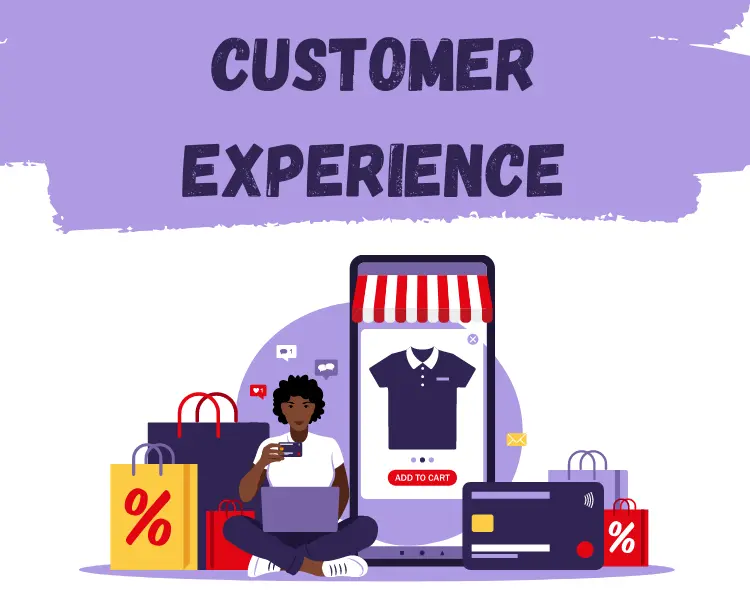
Provide Seamless and Convenient Online Shopping Experiences:
D2C brands should focus on providing a seamless and convenient online shopping experience for their customers. This includes ensuring that their e-commerce website is user-friendly, with intuitive navigation, fast loading times, and a secure checkout process. Optimizing the mobile experience is also crucial, as an increasing number of consumers make purchases on smartphones.
By streamlining the purchase journey and minimizing friction points, D2C brands can enhance the overall shopping experience.
Provide Personalized Product Recommendations and Customization Options:
Personalization is a powerful way to engage customers and make them feel valued. D2C brands can leverage customer data and browsing history to provide personalized product recommendations. By understanding customers’ preferences, purchase history, and demographics, brands can offer tailored suggestions that align with their interests.
Additionally, providing customization options, such as personalized packaging or the ability to create custom products, adds a unique touch and enhances the overall customer experience.
Build Trust Through Transparent Communication and Customer Support:
Building trust is vital for any D2C brand. Transparent communication with customers helps foster trust and loyalty. This includes providing accurate product information, clear pricing, and transparent policies. D2C brands should also establish efficient customer support channels, such as live chat, email, or social media, to address customer inquiries and concerns promptly. Timely and empathetic customer support contributes to a positive experience and builds trust with customers.
By providing exceptional customer experiences, D2C brands can differentiate themselves from competitors and create lasting connections with their customers. Offering seamless online shopping experiences, personalized recommendations, and customization options enhances customer satisfaction and drives loyalty.
Transparent communication and reliable customer support further build trust and confidence in the brand. By consistently prioritizing exceptional customer experiences, D2C brands can increase customer retention and generate positive word-of-mouth, leading to organic growth and long-term success.
Supply Chain and Logistics:
In the world of D2C brands, an efficient and well-managed supply chain and logistics process is crucial for delivering a seamless customer experience. From managing inventory to timely delivery and hassle-free returns, every aspect plays a vital role. Here are the key points to consider:

Manage Inventory Efficiently to Meet Customer Demand:
Effective inventory management is essential to ensure that D2C brands can meet customer demand while minimizing the risk of overstocking or stockouts. By utilizing inventory management software and demand forecasting techniques, brands can optimize inventory levels, anticipate customer needs, and avoid unnecessary costs. Real-time tracking of inventory allows brands to make data-driven decisions, maintain adequate stock levels, and fulfill customer orders promptly.
Partner with Reliable Shipping and Fulfillment Providers:
Partnering with reliable shipping and fulfillment providers is crucial for smooth order fulfillment and timely delivery. D2C brands should carefully choose their shipping partners based on factors such as cost, reliability, and coverage. Seamless integration between the e-commerce platform and the fulfillment provider’s system ensures accurate order processing and real-time tracking updates for customers. By selecting trustworthy partners, brands can provide a positive shipping experience, minimize shipping delays, and reduce the likelihood of damaged or lost packages.
Ensure Timely Delivery and Hassle-Free Returns:
Timely delivery is a critical factor in customer satisfaction. D2C brands should strive to meet or exceed customer expectations by providing prompt shipping and accurate delivery estimates. Offering expedited shipping options can further enhance the customer experience. Additionally, having a well-defined and customer-centric returns policy is important.
Brands should make the returns process hassle-free by providing clear instructions, pre-paid return labels, and a smooth refund or exchange process. By prioritizing efficient returns management, brands can build trust and confidence with customers, knowing that their satisfaction is valued.
Build Brand Loyalty and Advocacy:
Brand loyalty and advocacy are vital for the long-term success of D2C brands. By building strong relationships with customers and encouraging them to become brand advocates, D2C brands can foster loyalty and generate positive word-of-mouth. Here are the key points to consider:

Implementing Customer Loyalty Programs and Referral Incentives:
Customer loyalty programs are effective in encouraging repeat purchases and fostering brand loyalty. D2C brands can create loyalty programs that offer rewards, discounts, or exclusive perks to customers who consistently engage with the brand or make repeat purchases. Additionally, implementing referral incentives, where customers are rewarded for referring friends or family to the brand, can help generate new customers through the power of word-of-mouth marketing.
Nurturing Customer Relationships through Personalized Communication:
Personalized communication is key to building strong customer relationships. D2C brands should utilize customer data and segmentation to tailor their messaging and offers to individual customers. By sending personalized emails, targeted offers, and relevant product recommendations, brands can show customers that they understand their preferences and value their business. Regularly engaging with customers through personalized communication helps build trust, increase customer satisfaction, and foster loyalty.
Encouraging User-Generated Content and Reviews:
User-generated content (UGC) and customer reviews have a significant impact on brand perception and purchase decisions. D2C brands should actively encourage customers to create and share content related to their brand, products, or experiences.
This can include encouraging customers to share photos, videos, or testimonials on social media, using brand-specific hashtags, or participating in contests or challenges. By showcasing UGC and displaying customer reviews on the brand’s website, D2C brands can build trust, social proof, and authenticity, influencing potential customers to make a purchase.
By implementing customer loyalty programs, referral incentives, and personalized communication, D2C brands can cultivate brand loyalty and advocacy. Engaging with customers on a personal level creates a sense of belonging and appreciation. Additionally, encouraging user-generated content and customer reviews helps build social proof and credibility, influencing others to trust and engage with the brand. Building brand loyalty and advocacy leads to increased customer retention, positive word-of-mouth, and ultimately, sustainable business growth for D2C brands.
By carefully planning and executing these marketing strategies, Direct-to-consumer (D2C) brands can achieve sustainable growth, strengthen their market position, and capitalize on emerging opportunities. To discuss your D2C Brand Growth, book a free consultation session with our experts now.